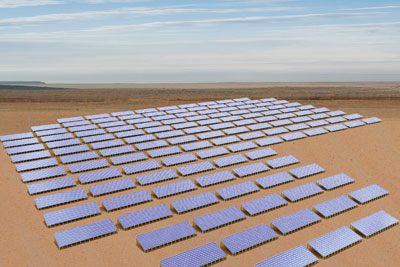forum
library
tutorial
contact

Nevada Assembly Passes
Solar-Energy Consumer Rights, Fees
Alison Noon, Associated PressU.S. News & World Reports, May 23, 2017
|
the film forum library tutorial contact |

|
Nevada Assembly Passes
Alison Noon, Associated Press |
Members of the Nevada Assembly are giving bipartisan support to one arm of the
Democratic majority's push to make solar energy more accessible.
 CARSON CITY, Nev. -- Members of the Nevada Assembly on Tuesday gave bipartisan support to one arm of the Democratic majority's push to make solar energy more accessible.
CARSON CITY, Nev. -- Members of the Nevada Assembly on Tuesday gave bipartisan support to one arm of the Democratic majority's push to make solar energy more accessible.
Assemblyman Chris Brooks, a Las Vegas Democrat, said his proposal would help revive Nevada's rooftop-solar industry, which entered a tailspin in 2015 when state utility supervisors effectively drove up the cost for residents to generate solar power at home. The regulatory changes halted the state's previously booming industry and prompted hundreds of layoffs.
Brooks' proposal would give broad rights to people in Nevada who invest in solar energy systems and would require Nevada companies to make solar-power contracts easier to understand.
Moreover, the bill would enshrine in law a system for residential users to share daytime rooftop energy production with the power grid in exchange for credits toward nighttime and cloudy-day power. NV Energy, the state's monopolized energy provider, imposes fees on each kilowatt-hour of excess solar-generated electricity that is kicked back to the company's grid.
Under the bill, solar users would be reimbursed 95 percent of the retail value of any power they contribute to the grid until the state's cumulative capacity of solar generators is nearly doubled -- from the current 2.6 percent to 6 percent of peak electricity demand, which must total at least 480 megawatts.
The reimbursement rate would decrease incrementally, bottoming out at 80 percent.
There is absolutely no way to be able to tell when that would happen, Brooks said, and he expects the biennial Legislature to revisit the rates before they fall that low.
"We think that storage is becoming more and more affordable. And the costs of these systems have come down and continue to go down -- and that's why the amount of reimbursement, I think it's a good idea for it to decline over time," Brooks said.
The Assembly voted 38-2 to pass Assembly Bill 405 to the Senate.
learn more on topics covered in the film
see the video
read the script
learn the songs
discussion forum
